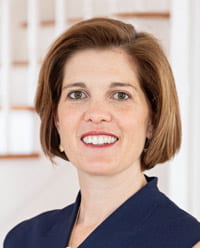
By Kaky Grant
As we set our sights and pin our hopes on 2021, philanthropists are looking to the social sector to express their closely held values and solutions to the world’s most urgent problems. What are they looking for as they engage in their philanthropic endeavors this year?
A curiosity about the stickiness of innovation
All sectors saw profound innovation in 2020 as businesses, governments, and nonprofits adapted their models to meet community needs and stay connected. Philanthropists watched in awe of nonprofit leaders who continually adapted their programs over the year. COVID accelerated innovation that had been on the hearts and minds of many in the sector.
Reimagined execution of programs offered creative expressions of organizations’ missions. Philanthropists are curious about the stickiness of these innovations: Will nonprofits permanently keep the changes they made? What makes sense to let go of? Does the culture of accelerated innovation stick around as a driving ethic of the social sector? What investments are needed to support this quick-paced innovation?
Collaboration is key

In the spirit of innovation, many nonprofits sought partnerships to implement their programs in a time of crisis, many of which may have seemed unimaginable before 2020. I have heard many funders say the scale of collaborations is historic as they have received countless collaborative proposals.
Funders noted that partnerships embody the sector’s best characteristics, capturing the spirit of innovation, acting on urgency, leading with humility, and keeping their constituencies first in mind.
Getting proximate
Positioning oneself close to the issues and people most affected by injustices and inequities is undoubtedly not a new philanthropy phenomenon. It is one that has gained much traction in the last year. Philanthropists are interested in building a diverse network of relationships to have a more holistic understanding of a community issue, a societal movement, or a nonprofit sector.
Investing in executive leadership with lived experiences of those the nonprofit serves is an effective strategy for philanthropic impact, a tactic we saw in McKenzie’s Scott’s unprecedented generosity. Similarly, there’s no better way to get to know an organization or build understanding around an issue than to “roll up your sleeves” and volunteer.
COVID has made this more challenging to do safely; donors find creative ways to engage virtually through webinars and Zoom calls. The notion of just passing dollars along to solve problems is viewed as only one tool in the philanthropy toolkit. More informed voices are needed to advocate and build awareness around the issues to bring greater amplifications to dollars given.
Stick to the mission
Ancient Greek philosophers used the words “know thyself” as a guiding ethic, and they still resonate today. The savviest philanthropists use a similar mantra in engaging in their philanthropy as their motivational values guide their choices. Likewise, they expect the same ethic applied within the organizations they support.
During turbulent times, there is a temptation to deviate from mission and vision to find footing in the current environment. Philanthropists are looking to invest in organizations that do what they do best. While the savvy donor applauds innovation and adaptability, they expect their nonprofit partners to stay within the guardrails of their mission.
Invest in solutions to urgent needs
The magnitude of the needs in our world can be overwhelming. There is an urgency to solve issues such as public health, poverty, and climate change unlike ever before. In the last year alone, we’ve witnessed a pandemic, racial unrest, catastrophic wildfires, and a challenge to our country’s democracy.
The narrative of “giving while living” is garnering much more attention. Philanthropists ask themselves “If not now, then when?” and “If not me, then who?” They’re seeking organizations and movements that are addressing the pressing needs of today that also align with their values system.
I am hearing more and more conversations among philanthropists centered on imagining a better world that will be inherited by future generations and how they can effectively deploy their funds today.
A place of hope
Philanthropists are inherently optimistic and believe in the power of humankind to help one another. Philanthropists are looking to engage in the nonprofit sector by giving, volunteering, and advocating as an expression of their hope and optimism they see in each other, their communities, our country, and our world. The social sector offers a bright light and beacon of hope as we find our way forward.
Kaky Grant is a master’s student at the Indiana University Lilly School of Philanthropy. She serves as the principal of Grant Philanthropic Advisors based in Charleston, SC. When not studying or working with donors, she enjoys being with her family, playing outside, and connecting with her nonprofit community.

Leave a Reply